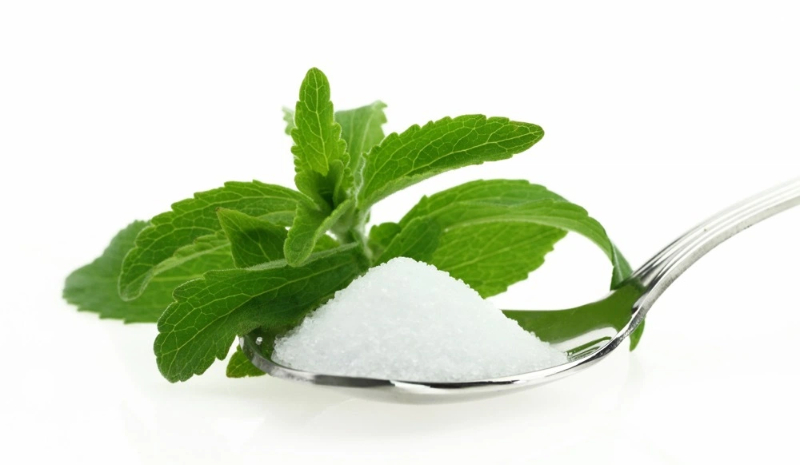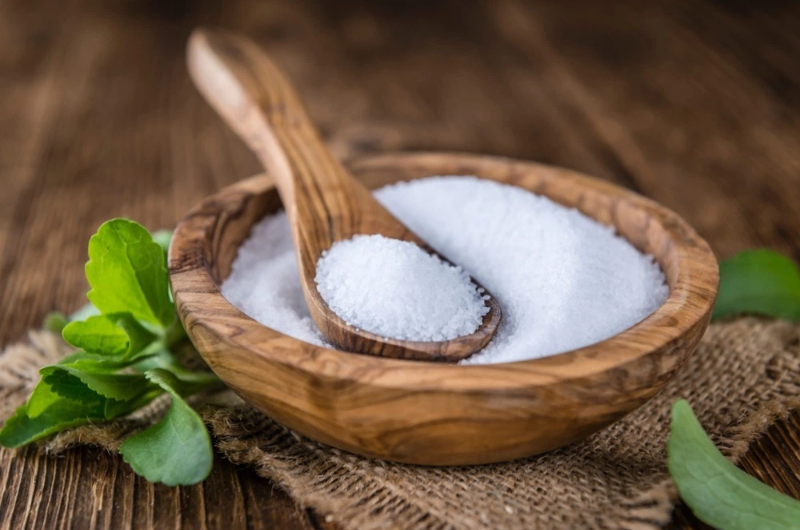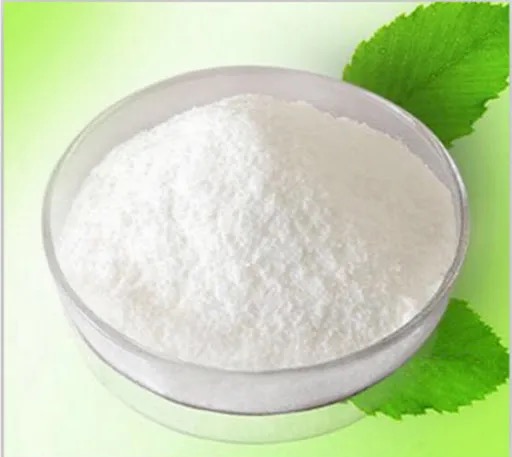Views: 222 Author: Sara Publish Time: 2025-10-26 Origin: Site








Content Menu
● Therapeutic biology of Stevia
● Human and animal data on inflammatory markers
● Long-term and high-dose considerations
● Stevia in metabolic health and inflammation
● Clinical implications and safety considerations
● Functional roles in product development
● Interactions with other ingredients and foods
● Special populations and considerations
● Methodological notes for researchers and reviewers
● Real-world applications and policy context
● Emerging frontiers in Stevia research
● Practical recommendations for consumers and manufacturers
● FAQ
>> 1. How does Stevia affect inflammatory markers in CKD patients?
>> 2. Are there any interactions between Stevia and anti-inflammatory medications?
>> 3. Can Stevia be used in functional foods aimed at inflammatory conditions?
>> 4. Is there a difference between stevioside and rebaudioside A in terms of inflammation?
>> 5. What about high-dose Stevia or long-term use?
Stevia, a natural sweetener derived from the leaves of the Stevia rebaudiana plant, has become a popular alternative to sugar across food, beverage, and health sectors. In the context of human health, a central question persists: does Stevia cause inflammation in the body? The current body of evidence largely supports the safety of Stevia with anti-inflammatory signals, while acknowledging nuances related to dose, duration, and individual physiology. This article surveys mechanistic studies, clinical trials, and meta-analytic perspectives to present a nuanced view that Stevia is unlikely to provoke inflammation and may, in several settings, attenuate inflammatory processes. Throughout, Stevia and its key bioactive constituents—stevioside and rebaudioside A—are highlighted as the principal agents implicated in these effects.

Stevia contains steviol glycosides, primarily stevioside and rebaudioside A, which are responsible for its intense sweetness. Beyond taste, these compounds interact with multiple biological pathways implicated in inflammation and metabolic regulation. Mechanistic evidence suggests that Stevia compounds can modulate inflammatory signaling networks, including NF-κB, MAPK, and TLR pathways, which coordinate the production of pro-inflammatory cytokines such as TNF-α, IL-6, and IL-1β. Additionally, Stevia has been associated with antioxidant effects and improvements in metabolic parameters that indirectly influence inflammatory status. Collectively, these properties frame Stevia as a potential contributor to anti-inflammatory milieu rather than a pro-inflammatory trigger when consumed at typical dietary levels.[4][7][8]
In preclinical models, Stevia extracts have demonstrated reductions in inflammatory cell infiltration and downregulation of cytokine expression in various tissues. In vivo studies consistently report suppression of pro-inflammatory cytokines and mediators, aligning with the proposed anti-inflammatory mechanism of stevioside and related compounds. In human contexts, some randomized trials and observational analyses have examined inflammatory biomarkers such as C-reactive protein (CRP), IL-6, TNF-α, and other cytokines. Across these studies, the trend favors neutral or beneficial outcomes for inflammatory markers with Stevia consumption, particularly when used as a sugar substitute to improve metabolic control and reduce postprandial glucose excursions. Nonetheless, heterogeneity in study design, populations, and dosing means that definitive universal conclusions require cautious interpretation.[1][8][9]
A subset of studies highlights that extremely high doses or prolonged exposure in animal models can yield immune-related changes. These findings often reflect pharmacological dosing that far exceeds typical dietary intake. In humans, such exposure levels are uncommon with standard product usage. The consensus remains that normal culinary and beverage use of Stevia is unlikely to provoke inflammatory responses; instead, appropriate use may support reduced inflammatory burden via metabolic improvements and antioxidant effects. It is essential to consider individual variability, such as existing inflammatory conditions, comorbidities, and concurrent medications, when interpreting these results.[2][9][10]
A key link between Stevia and inflammation lies in metabolic health. Improved insulin sensitivity, better glycemic control, and favorable lipid profiles associated with Stevia can reduce glycation and oxidative stress—two drivers of chronic inflammation. Experiments and clinical observations indicate that Stevia's benefits may extend to vascular health and blood pressure regulation through mechanisms that reduce vascular inflammation and endothelial dysfunction. While these effects do not imply Stevia is a universal anti-inflammatory remedy, they contribute to a favorable inflammatory milieu in individuals at risk for metabolic syndrome or type 2 diabetes, especially when Stevia replaces high-sugar options.[9][1][2]
From a clinical perspective, Stevia appears safe for most individuals when used within established dietary guidelines. Regulatory bodies in many regions recognize Stevia's safety profile, citing extensive toxicological evaluations and long-standing usage. For patients with specific conditions such as chronic kidney disease or inflammatory disorders, ongoing research seeks to clarify nuanced effects and optimal dosing. In practice, Stevia can be incorporated as a sugar substitute to reduce caloric intake and support metabolic health, which in turn can help mitigate systemic inflammatory processes associated with excess weight and poor glycemic control.[5][1][9]
For manufacturers serving the food, beverage, and healthcare sectors, Stevia offers advantages beyond sweetness. Its antioxidant and potential anti-inflammatory properties can complement functional ingredient strategies, particularly in formulations aimed at cardiovascular health, metabolic support, and wellness-oriented products. When developing blends, optimizing the balance between stevioside, rebaudioside A, and other minor glycosides can tailor sweetness profiles while preserving potential health benefits. OEM/ODM partnerships can leverage Stevia's versatility to create products ranging from low-sugar beverages to dietary supplements and functional foods that align with health-conscious consumer trends.[6][11][2]

The inflammatory response to Stevia does not occur in isolation; it is influenced by the dietary matrix and co-ingested compounds. For example, combining Stevia with high-antioxidant ingredients (such as polyphenol-rich herbs and fruits) may synergistically enhance anti-inflammatory outcomes, whereas a diet high in ultra-processed fats and sugars can mask potential benefits. Processing methods, extraction purity, and the presence of additives can also modulate bioavailability and bioactivity of Stevia glycosides. Thus, formulation strategies should consider the entire product profile rather than focusing solely on Stevia content.[8][1][4]
Certain populations may have unique responses to Stevia. For instance, individuals with allergies to related plant compounds or those with pregnancy and lactation considerations should consult healthcare professionals regarding Stevia use. Additionally, individuals with kidney disease or on particular medications should monitor ingestion levels and consult clinicians, given ongoing research into Stevia's renal and hematological interactions in specific contexts.[1][5]
Interpreting the literature on Stevia and inflammation requires attention to study design, dosing, duration, and endpoints. In vitro studies offer mechanistic insights but may not directly translate to human outcomes. Animal models provide relevant biological context but require cautious extrapolation. Clinical trials and meta-analyses that measure inflammatory biomarkers over time in diverse populations yield the most applicable guidance for consumer health recommendations. Transparent reporting of dose ranges, purity of Stevia extracts, and control conditions is essential for drawing robust conclusions.[7][4][9]
From a public health perspective, replacing sugar with Stevia can contribute to lower caloric intake, better weight management, and improved metabolic parameters—factors known to influence chronic inflammation at a population level. Regulatory and industry stakeholders continue to monitor emerging data to ensure that product labeling and health claims reflect current scientific consensus. For manufacturers, aligning product development with evolving evidence helps build consumer trust and supports health outcomes in target markets.[11][5][9]
Recent and ongoing studies explore new dimensions of Stevia's health effects, including anticancer potential, gut microbiota interactions, and enhanced bioavailability through fermentation and nanoparticle formulations. While these areas extend beyond the core question of inflammation, they contribute to a broader understanding of Stevia as a bioactive plant-based compound with multifaceted health implications. The convergence of nutrition science, microbiology, and pharmacology is likely to yield deeper insights into how Stevia influences inflammatory processes in specific contexts and populations.[3][6][1]
- For consumers: Use Stevia as a sugar substitute to support reduced caloric intake and better glycemic control, particularly when integrated into balanced dietary patterns rich in fruits, vegetables, whole grains, and lean proteins. Monitor personal responses and consult healthcare providers if unusual symptoms arise.
- For manufacturers: Emphasize clean-label formulations with high-purity Stevia extracts, optimize sweetness profiles, and consider co-ingredients with anti-inflammatory potential to create synergistic health benefits. Ensure quality control and clear labeling to support consumer confidence.
Current evidence across preclinical and human studies supports the conclusion that Stevia does not provoke inflammation in the body and may contribute to anti-inflammatory outcomes, especially through mechanisms that reduce pro-inflammatory cytokines and improve metabolic health. While isolated studies report immune markers changes at very high doses or with specific conditions, these findings do not diminish the overall safety and potential health benefits of standard Stevia usage. As research advances, nuanced understanding will continue to refine recommendations for different populations and product applications, reinforcing Stevia's role as a functional sweetener in the modern health-conscious landscape.

Preliminary randomized trials suggest Stevia can improve inflammatory markers and renal parameters in CKD patients, though larger studies are needed to confirm long-term benefits and safety in this population.[1]
Current evidence does not indicate widespread, clinically significant interactions, but any patient-specific regimen should be discussed with a clinician, especially when high-dose Stevia is considered or combined with immune-modulating therapies.[5][1]
Yes, Stevia's incorporation into functional foods and beverages can support reduced caloric load and improved metabolic control, potentially contributing to lower inflammatory burden when part of a balanced diet. Product developers should validate health claims with robust clinical data and ensure compliance with regulatory guidelines.[8][11]
Both stevioside and rebaudioside A have demonstrated anti-inflammatory mechanisms in various models; their relative contributions can vary by context, dose, and tissue, but both are considered beneficial in reducing inflammatory signaling under typical usage conditions.[2][7]
High-dose or long-term exposure in some studies has shown immune modulation in animals; however, these doses are seldom reached in normal dietary practices, and human data at typical consumption levels generally show safety and potential anti-inflammatory benefits.[10][9]
[1](https://www.cureus.com/articles/386193-effects-of-stevia-on-inflammatory-markers-renal-and-hematological-parameters-in-patients-with-stage-i-iii-chronic-kidney-disease-a-randomized-placebo-controlled-clinical-trial-in-bangladesh.pdf?email=)
[2](https://pmc.ncbi.nlm.nih.gov/articles/PMC12443846/)
[3](https://medicalxpress.com/news/2025-07-stevia-leaf-potential-anticancer-treatment.html)
[4](https://www.sciencedirect.com/science/article/pii/S3050843625000368)
[5](https://pubmed.ncbi.nlm.nih.gov/40978487/)
[6](https://www.sciencedirect.com/science/article/pii/S2666154325003515)
[7](https://www.tandfonline.com/doi/full/10.1080/26895293.2020.1771434)
[8](https://pmc.ncbi.nlm.nih.gov/articles/PMC10673113/)
[9](https://health.clevelandclinic.org/what-is-stevia)
[10](https://pmc.ncbi.nlm.nih.gov/articles/PMC7584803/)
[11](https://www.caldic.com/zh-hans-cn/markets/food-beverage/beverage/)
